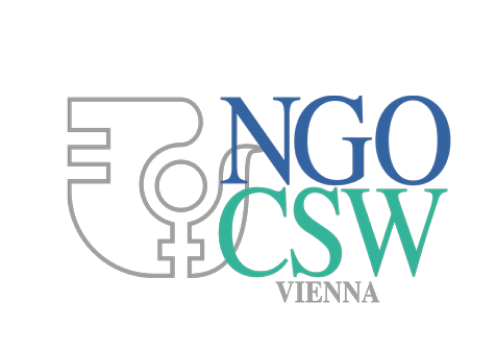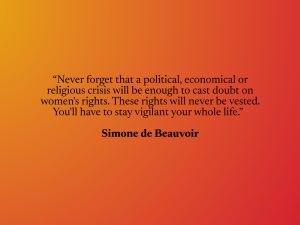Presented by the International Association of Democratic Lawyers on behalf of the undersigned member organizations of the NGO Committee on the Status of Women Vienna to the participants of the 62nd Commission on the Status of Women:
We welcome the CSW62 Review Theme on women and the media. The last twenty years have seen enormous changes in this field: in 1995 only 1% of the world population had access to the Internet. In 2015, the International Telecommunication Union estimated that about 3.2 billion people, or almost half of the world’s population, were online.
Unfortunately, the expectation that the World Wide Web would bring more freedom and better communication and opportunities has not been met. Cyberspace has provided opportunities for crime and abuse, particularly against women and girls. The so-called “dark web” provides a platform for illegal activities including all forms of trafficking (women, organs, weapons, drugs).
Some researchers maintain that hierarchical and patriarchal structures as well as gender stereotypes and traditional roles of men and women have been not only maintained but fortified online. The 5th Global Media Monitoring Project “Who Makes the News” (2015) finds gender representation in both online and offline media almost unchanged in the past 10 years. On social media, women are subjects or sources in 26% of stories, only 2% more often than in traditional media (24%).
In the context of SDG # 5’s Target 5.B: Enhance the use of enabling technology, in particular information and communications technology, to promote the empowerment of women, we urge delegates to CSW to consider the following:
- We support the work of the UN Broadband Commission established by former Secretary General Ban Ki-moon, und underline the importance of the conclusions of the 2015 report “Cyber Violence Against Women and Girls: A Worldwide Wake-Up Call”;
- We underline that sustainable development can only be achieved when human rights are respected and violence ended, and welcome the Human Rights Council’s decision that human rights apply online as well as off-line;
- We call for the nomination of a UN Special Rapporteur on Cyber Violence Against Women and Girls;
- We support the initiative to establish a Cyber Civil Rights Charter;
- We do not accept the anonymity and lack of accountability in cyberspace, unlike in printed media; anonymity facilitates abuse and criminal activities. We urge that all laws governing and regulating printed media be applied online;
- We strive for a genderless internet, and call for education and training to enhance women and girls’ ability to use the Internet safely and securely;
- We demand training on cybercrime and cyber violence against women and girls for teachers, social workers, police, prosecutors and judges;
- We support the “Right to be Forgotten” and urge its imminent implementation;
- We note that the introduction of the “paperless UN” has created new obstacles hindering the participation of citizens and grassroots NGOs, who do not have access to UN programs and information without the advanced technologies used by the UN;
- We welcome the Equals initiative to achieve digital gender equality, to realize the potential for the Internet to provide opportunities for all women and men, girls and boys, and enable real progress for society as a whole.
Signed by the following member organizations of the NGO Committee on the Status of Women Vienna:






